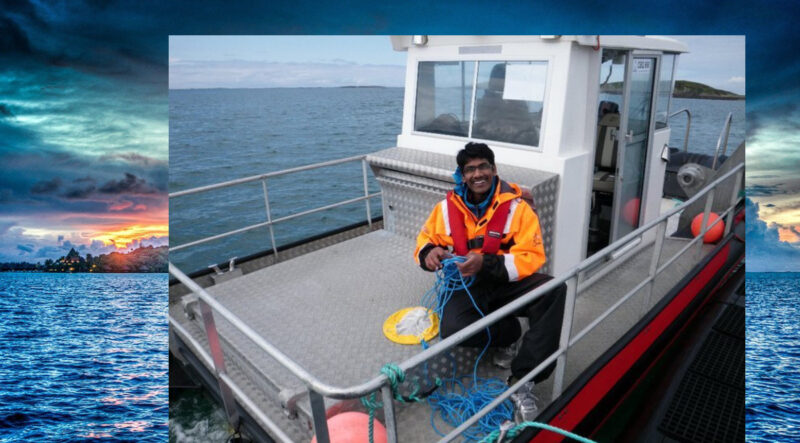BC’s Blue Revolution with Jay Pudota
“…farming fish will reduce the pressure on the wild stocks, and the technology developed in the farming industry will help in improving wild fish stocks that are hard hit by the changing oceans…”
By Samantha Bacchus McLeod
SeaWestNews
The newly unveiled Youth Council of the BC Salmon Farmers Association (BCSFA) is all about greening forward for sustainable aquaculture to feed Canada and the world. This strong group of young individuals, who are already making waves in aquaculture, will act as advisors for concepts brought forth by salmon farmers and as seafood ambassadors for BC. Over the next few months, SeaWestNews in a special series of Q and A presentations, will explore how members of BCSFA’s Youth Council play a role in British Columbia’s Blue Revolution. This segment on BC’s Blue Revolution features Jay Pudota, President, Samudra environmental consultants, and member of the BCSFA Youth Council.
Tell us a bit about yourself?
“I am originally from India, and my father and mother and most of my family still lives in India. I do have one brother living in Nova Scotia where he is studying artificial intelligence at St. Francis Xavier University (STFX). My wife and I are the only ones from my family living here in Campbell River.”
Do you enjoy life on the island?
“I do! I enjoy my work, and when I am not working I cycle the trails, and also run and hike around the island exploring this beautiful place we live in. I also love motorcycling and so I have ridden my motorcycle to every town on the Island starting from Winter Harbour to Victoria. I know this place from end to end.”
Did you know a lot about fish farming before joining this industry?
“I come from a farming family and from a young age I learned about farming and being a farmer. As I grew older my thoughts have always been that we have limited land and vast oceans with great untapped potential…marine aquaculture is the future of food production. Responsibly farming the oceans would support the food security for the generations to come…that said, choosing fish farming was a very easy choice for me.”
Where did you study for a career in the aquaculture industry?
“I did a bachelors in fisheries and aquaculture from Sri Venkateswara Veterinary University (SVVU) in India. Later I did master’s in marine coastal development from The Norwegian University of Science and Technology (NTNU), and then, an advanced diploma in sustainable aquaculture from The Marine Institute, St. John’s, Newfoundland and Labrador, Canada…Currently, I am doing a second masters in marine technology management. I am also a Registered Professional Biologist (RPBio).”
That is a lot of studying, have you been able to use it all in this industry?
“I have been in aquaculture and the associated industries for the past 15 plus years…I started my career in aquaculture as a shrimp and fish farmer in India while I was doing my Bachelors in fisheries and aquaculture…to date, I have farmed shrimp, carp and aquarium fish in earthen ponds, silver pompano, cobia and sea bass in small cages, and Atlantic salmon in commercial size cages.”
And here in Canada?
“After I moved to BC, I was working for Marine Harvest as a plankton analyst in the summer and as a fish farmer in winter months for the first few years, and I also worked as a water quality manager for a few years at Mowi Canada West.”
What are you doing in the salmon farming business now?
“A couple years ago, I started my own consulting firm Samudra and acquired Microthalassia. I have been working on many different projects mostly related to water quality and environmental monitoring…at present, I am trying to grow my new business Samudra Environmental Consulting. It’s been tough being a new business owner during these crazy COVID-19 times. I hope things will ease off in the future.”
What do you think are the most crucial issues facing salmon farming in BC?
“I think changing oceans would pose the greatest risk to marine farming, followed by the spreading of misinformation.”
How do you see the future of fish, both farmed and wild, in BC?
“I guess it depends on how we all take care of both. Both farmed and wild are important because farming fish will reduce the pressure on the wild stocks, and the technology developed in the farming industry would help in improving the wild fish stocks that are hard hit by the changing oceans. So if everyone can work together, I see them both coexisting for generations to come.”
Your favourite seafood dish and why do you like it?”
“I love oysters and mussels from Vancouver island because they are abundant here, and they taste like clean oceans and fresh air.”

